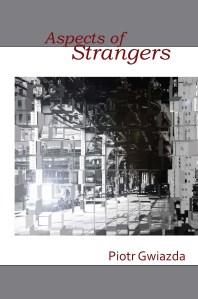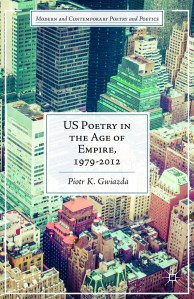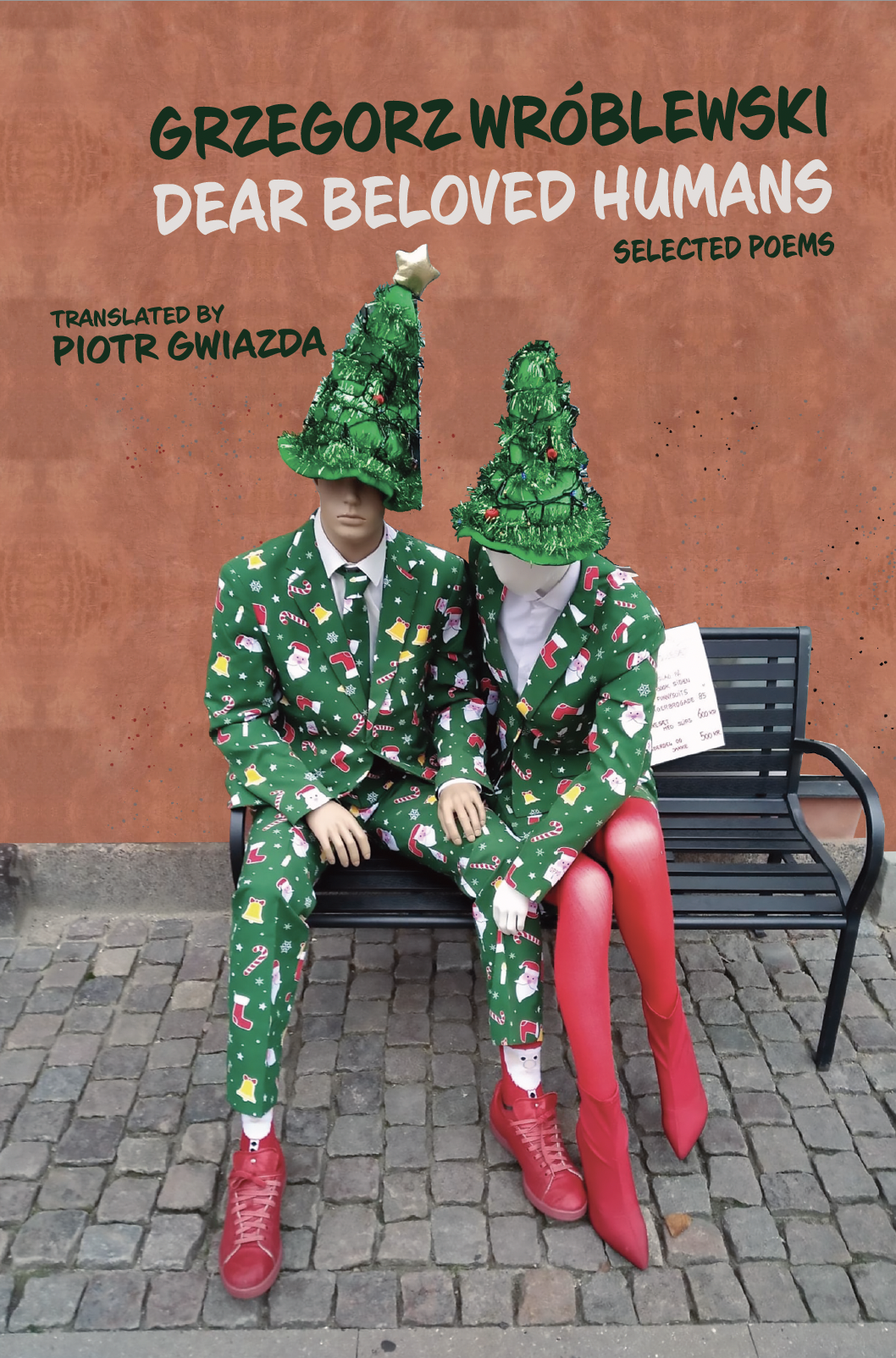 Dear Beloved Humans: Selected Poems by Grzegorz Wróblewski (translation). Diálogos Books (2023). “In this book we find short brilliant grim verse tales … Grzegorz Wróblewski is the great sweetly sardonic poet of [our] humane belatedness” (Al Filreis). “The amazingly compressed poems in Dear Beloved Humans are constantly banging themselves against this world that makes no sense, but that most of us have nevertheless simply accepted, and Wróblewski has taken on the poetic task of jarring us into a renewed apprehension of the world’s terrible, hilarious absurdity. ‘What took place a moment ago / no longer has any importance,’ he says — not when we’re utterly surrounded by the horrors of history, hunger, aging, lust, and endless wars ‘they all’ lose ‘but claim / they won.’ Wróblewski’s pessimism is fantastic, entertaining, and timeless. I laughed out loud while reading this book, then got up from my chair feeling truly shaken” (Wayne Miller). Reviewed in Restless Messengers (Timothy Quinn), The Hopkins Review (Leonard Kress), Modern Poetry in Translation (Dawid Mobolaji), Glassworks (Allison D’Arienzo), A Thin Slice of Anxiety and Sahitya Post (Marcus Silcock).
Dear Beloved Humans: Selected Poems by Grzegorz Wróblewski (translation). Diálogos Books (2023). “In this book we find short brilliant grim verse tales … Grzegorz Wróblewski is the great sweetly sardonic poet of [our] humane belatedness” (Al Filreis). “The amazingly compressed poems in Dear Beloved Humans are constantly banging themselves against this world that makes no sense, but that most of us have nevertheless simply accepted, and Wróblewski has taken on the poetic task of jarring us into a renewed apprehension of the world’s terrible, hilarious absurdity. ‘What took place a moment ago / no longer has any importance,’ he says — not when we’re utterly surrounded by the horrors of history, hunger, aging, lust, and endless wars ‘they all’ lose ‘but claim / they won.’ Wróblewski’s pessimism is fantastic, entertaining, and timeless. I laughed out loud while reading this book, then got up from my chair feeling truly shaken” (Wayne Miller). Reviewed in Restless Messengers (Timothy Quinn), The Hopkins Review (Leonard Kress), Modern Poetry in Translation (Dawid Mobolaji), Glassworks (Allison D’Arienzo), A Thin Slice of Anxiety and Sahitya Post (Marcus Silcock).
 Wiersze [Poems], translated into Polish by Jacek Gutorow, Piotr Siwecki, Krzysztof Szatrawski, and Adam Zdrodowski. SPP Olsztyn, Poland (2020). “The speaker of these poems is clear and well defined . We partake with him in introspections and externalizations, in descriptions of reality and thought-processes – I like the poet ‘walking’ around the world with his camera mind-eye-poem. However, there is always dialogue in his lyricism, a dialogue of eye-mind-tongue. These are well-made, precise, remarkable lyrical compositions that can be viewed as images of a mind in motion or as images of emotions made visible so that they lose their obviousness and everyday banality and acquire the value of parables. Perception, thinking, commentary on the era, creation – these four factors combine in the form of Piotr Gwiazda’s open poem (open to the world and its rules)” (from “Afterword” by Kazimierz Brakoniecki).
Wiersze [Poems], translated into Polish by Jacek Gutorow, Piotr Siwecki, Krzysztof Szatrawski, and Adam Zdrodowski. SPP Olsztyn, Poland (2020). “The speaker of these poems is clear and well defined . We partake with him in introspections and externalizations, in descriptions of reality and thought-processes – I like the poet ‘walking’ around the world with his camera mind-eye-poem. However, there is always dialogue in his lyricism, a dialogue of eye-mind-tongue. These are well-made, precise, remarkable lyrical compositions that can be viewed as images of a mind in motion or as images of emotions made visible so that they lose their obviousness and everyday banality and acquire the value of parables. Perception, thinking, commentary on the era, creation – these four factors combine in the form of Piotr Gwiazda’s open poem (open to the world and its rules)” (from “Afterword” by Kazimierz Brakoniecki).
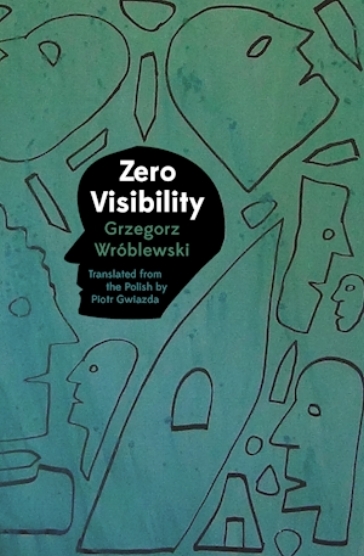 Zero Visibility by Grzegorz Wróblewski (translation). Phoneme Media/Deep Vellum (2017). “This brilliant collection offers an elegantly translated Vergil for the conditions of zero visibility that seem inevitable as we try to make sense of the diverse threads constituting our lives” (Charles Altieri). “Prolonged nudity as an enhanced interrogation technique. The Juice Probe that looks for life on one of Jupiter’s moons. A wish to be reincarnated as a crab. The memory of something velvety. This is the realm of melancholic hilarity that Grzegorz Wróblewski’s Zero Visibility occupies: at moments hallucinatory, at other moments rooted in hard reality. Found language is collaged with the imaginative workings of a brilliant mind, and the result is revelation, both funny and tragic” (Sharon Mesmer). Reviewed in Asymptote (Stefan Kielbasiewicz), Eclectica (Gilbert Wesley Purdy), Jacket2 (Al Filreis), Waxwing (Leonard Kress), Empty Mirror (Marcus Slease), Journal of Poetics Research (Tim Suermondt), Poetry Wales (Elżbieta Wójcik-Leese).
Zero Visibility by Grzegorz Wróblewski (translation). Phoneme Media/Deep Vellum (2017). “This brilliant collection offers an elegantly translated Vergil for the conditions of zero visibility that seem inevitable as we try to make sense of the diverse threads constituting our lives” (Charles Altieri). “Prolonged nudity as an enhanced interrogation technique. The Juice Probe that looks for life on one of Jupiter’s moons. A wish to be reincarnated as a crab. The memory of something velvety. This is the realm of melancholic hilarity that Grzegorz Wróblewski’s Zero Visibility occupies: at moments hallucinatory, at other moments rooted in hard reality. Found language is collaged with the imaginative workings of a brilliant mind, and the result is revelation, both funny and tragic” (Sharon Mesmer). Reviewed in Asymptote (Stefan Kielbasiewicz), Eclectica (Gilbert Wesley Purdy), Jacket2 (Al Filreis), Waxwing (Leonard Kress), Empty Mirror (Marcus Slease), Journal of Poetics Research (Tim Suermondt), Poetry Wales (Elżbieta Wójcik-Leese).
Aspects of Strangers. Moria Books (2015). Selected for “Best Books of World Poetry in 2015” by Scroll magazine. “Reading this book I begin to understand how the future (if there is one) might regard us — with pity, amusement (we are, after all, family) and a deep, deep frustration. Aspects of Strangers is the antidote to that frustration, which makes it that rarest of things, a necessary book of poetry” (Andrew Feld). “Gwiazda’s is an important and different take on the contemporary situation, and for that a necessary voice to consider” (John Gallaher). “Gwiazda’s dazzling carnival of maxims, observations, inverted slogans, pieces of dreams, quotations, asides . . . is like a miniature twenty-first century Arcades Project, and in the throes of his caustic ars poetica perhaps there is a glimmer of hope for awakening from the bad dream we’ve induced” (David Lazar). Reviewed in Sonora Review (Abby Dockter), Ostrich Review (Tessy Ward), Main Street Rag (Michael Wayne Friedman), Loch Raven Review (Dan Cuddy), Broadkill Review (Scott Whitaker), JMWW (Alan C. Reese), Hartskill Review (Joshua Hjalmer Lind), Gigantic Sequins (Craig Chisholm), Matrix (Grzegorz Wróblewski), Scroll (Adam Zdrodowski).
US Poetry in the Age of Empire, 1979-2012. Palgrave Macmillan (2014). “Gwiazda has accomplished something remarkable in US Poetry in the Age of Empire, 1979-2012: he has taken a period often seen as the triumph of ‘language centered’ poetics and redefined it as the age of civic poetry” (Robert Archambeau). “With admirable precision and care, Gwiazda tracks a shift over the past few decades from skepticism over a Cold War-era fiction of the United States as a bringer of peace, freedom, and democracy to a cautious critique of twenty-first-century America’s ‘preemptive’ wars and global promotion of an unjust economic order” (Brian Reed). “Gwiazda’s work is theoretically well-grounded in the political philosophy of Michael Hardt, wide-ranging and open in its considerations of competing poetic claims, and well-informed about the current situation of poetry” (Leonard Schwartz). Reviewed in Style (Jeff Westover), New Left Review (David Lau), American Literary Scholarship: An Annual 2014 (Jim Cocola).
Kopenhaga by Grzegorz Wróblewski (translation). Zephyr Press (2013). Recipient of a grant from the PEN American Center Translation Fund, Kopenhaga is the first comprehensive collection of prose poetry by Grzegorz Wróblewski, one of Poland’s leading contemporary writers. “Grim, glancingly beautiful, always necessary” (Joshua Clover). “One of the most important books of our time” (Gabriel Gudding). “A familiar figure everywhere, yet at home nowhere, Wróblewski is the true poetic chronicler of our 21st century diaspora in all its absurdities and anxieties” (Marjorie Perloff). Reviewed in Modern Poetry in Translation (Elzbieta Wojcik-Leese), Antioch Review (John Taylor), Pleiades (Bruce Whiteman), Poetry Wales (Elzbieta Wojcik-Leese), The Crooked Treehouse (Adam Stone), Eclectica (Gilbert Wesley Purdy), Three Percent (Chad W. Post), Three Percent (Vincent Francone), In Quire (H.L. Hix), Never Mind the Beasts (Marcus Slease), World Literature Today (Piotr Florczyk).
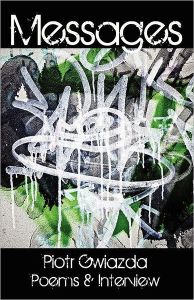 Messages: Poems & Interview. Pond Road Press (2012). A collection of twenty-one poems followed by an extensive interview by Patric Pepper on topics ranging from Empire, “the right to illusion,” Bertold Brecht to poetry and politics, poetic influence, and exophonic writing. “Meditative and eloquent … There’s something of that quiet Wislawa Szymborska-style interest in history intersecting with everyday life going on here” (Robert Archambeau). Reviewed in Jacket2 (Robert Manaster), Poetry Salzburg Review (Doug Van Gundy), The Rumpus (David Peak), New Pages (Joanna Kurowska), Loch Raven Review (Dan Cuddy), Baltimore Review (Sam J. Schmidt), JMWW (Elizabeth De Fries), James Merrill House Blog (Lynn Callahan), Joseph Ross Blog, Midwest Book Review (James A. Cox).
Messages: Poems & Interview. Pond Road Press (2012). A collection of twenty-one poems followed by an extensive interview by Patric Pepper on topics ranging from Empire, “the right to illusion,” Bertold Brecht to poetry and politics, poetic influence, and exophonic writing. “Meditative and eloquent … There’s something of that quiet Wislawa Szymborska-style interest in history intersecting with everyday life going on here” (Robert Archambeau). Reviewed in Jacket2 (Robert Manaster), Poetry Salzburg Review (Doug Van Gundy), The Rumpus (David Peak), New Pages (Joanna Kurowska), Loch Raven Review (Dan Cuddy), Baltimore Review (Sam J. Schmidt), JMWW (Elizabeth De Fries), James Merrill House Blog (Lynn Callahan), Joseph Ross Blog, Midwest Book Review (James A. Cox).
 James Merrill and W.H. Auden: Homosexuality and Poetic Influence. Palgrave Macmillan (2007). “Gwiazda’s book thoroughly traces the historical and textual influence of Auden on Merrill, arguing that this poetic transmission was imagined by Merrill as a specifically ‘gay’ one. The presence of Bloom’s theory of influence hovers behind the text and Gwiazda attempts to keep this active while also entertaining the critiques that have been leveled at it by queer theorists and gay critics. The writing is elegant and the scholarship thorough. The particular combination of elements — poetic influence, Merrill and Auden’s historical positions as gay poets, and close attention to The Changing Light at Sandover — make this study a very original contribution to Merrill criticism” (John Emil Vincent). Reviewed in Modernism/Modernity (Timothy Materer), American Literary Scholarship: An Annual 2007 (Frank J. Kearful), The Year’s Work in English Studies (James Gifford).
James Merrill and W.H. Auden: Homosexuality and Poetic Influence. Palgrave Macmillan (2007). “Gwiazda’s book thoroughly traces the historical and textual influence of Auden on Merrill, arguing that this poetic transmission was imagined by Merrill as a specifically ‘gay’ one. The presence of Bloom’s theory of influence hovers behind the text and Gwiazda attempts to keep this active while also entertaining the critiques that have been leveled at it by queer theorists and gay critics. The writing is elegant and the scholarship thorough. The particular combination of elements — poetic influence, Merrill and Auden’s historical positions as gay poets, and close attention to The Changing Light at Sandover — make this study a very original contribution to Merrill criticism” (John Emil Vincent). Reviewed in Modernism/Modernity (Timothy Materer), American Literary Scholarship: An Annual 2007 (Frank J. Kearful), The Year’s Work in English Studies (James Gifford).
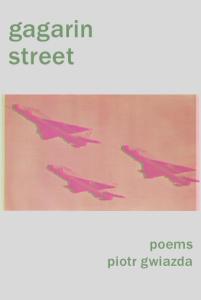 Gagarin Street: Poems. Washington Writers’ Publishing House (2005). Winner of the 2005 WWPH Poetry Contest, chosen by Grace Cavalieri for The Montserrat Review Best Picks for Poetry 2005. “This book is full of terrific, lively poems I wish I had written” (Gaylord Brewer). “Gagarin Street summons not a Kierkegaardian either/or, but the subtly complex both/and of Eastern European masters” (Mark Nowak). “Beneath these compelling, elusive surfaces moves a penetrating and skeptical intelligence” (Peter Schmitt). Reviewed in Pleiades: A Journal of New Writing (Carol Quinn), Jacket (Ivan Weiss), Galatea Resurrects (A Poetry Engagement) (Fionna Donney Simmonds), Book/Mark: Small Press Quarterly Review (Carlos Hiraldo), Samizdat Blog (Robert Archambeau), The Multicultural Review (Gene Damm), Midwest Book Review (James A. Cox), The Daily Glance (William Allegrezza), Writing Polish Diaspora (John Guzlowski).
Gagarin Street: Poems. Washington Writers’ Publishing House (2005). Winner of the 2005 WWPH Poetry Contest, chosen by Grace Cavalieri for The Montserrat Review Best Picks for Poetry 2005. “This book is full of terrific, lively poems I wish I had written” (Gaylord Brewer). “Gagarin Street summons not a Kierkegaardian either/or, but the subtly complex both/and of Eastern European masters” (Mark Nowak). “Beneath these compelling, elusive surfaces moves a penetrating and skeptical intelligence” (Peter Schmitt). Reviewed in Pleiades: A Journal of New Writing (Carol Quinn), Jacket (Ivan Weiss), Galatea Resurrects (A Poetry Engagement) (Fionna Donney Simmonds), Book/Mark: Small Press Quarterly Review (Carlos Hiraldo), Samizdat Blog (Robert Archambeau), The Multicultural Review (Gene Damm), Midwest Book Review (James A. Cox), The Daily Glance (William Allegrezza), Writing Polish Diaspora (John Guzlowski).
